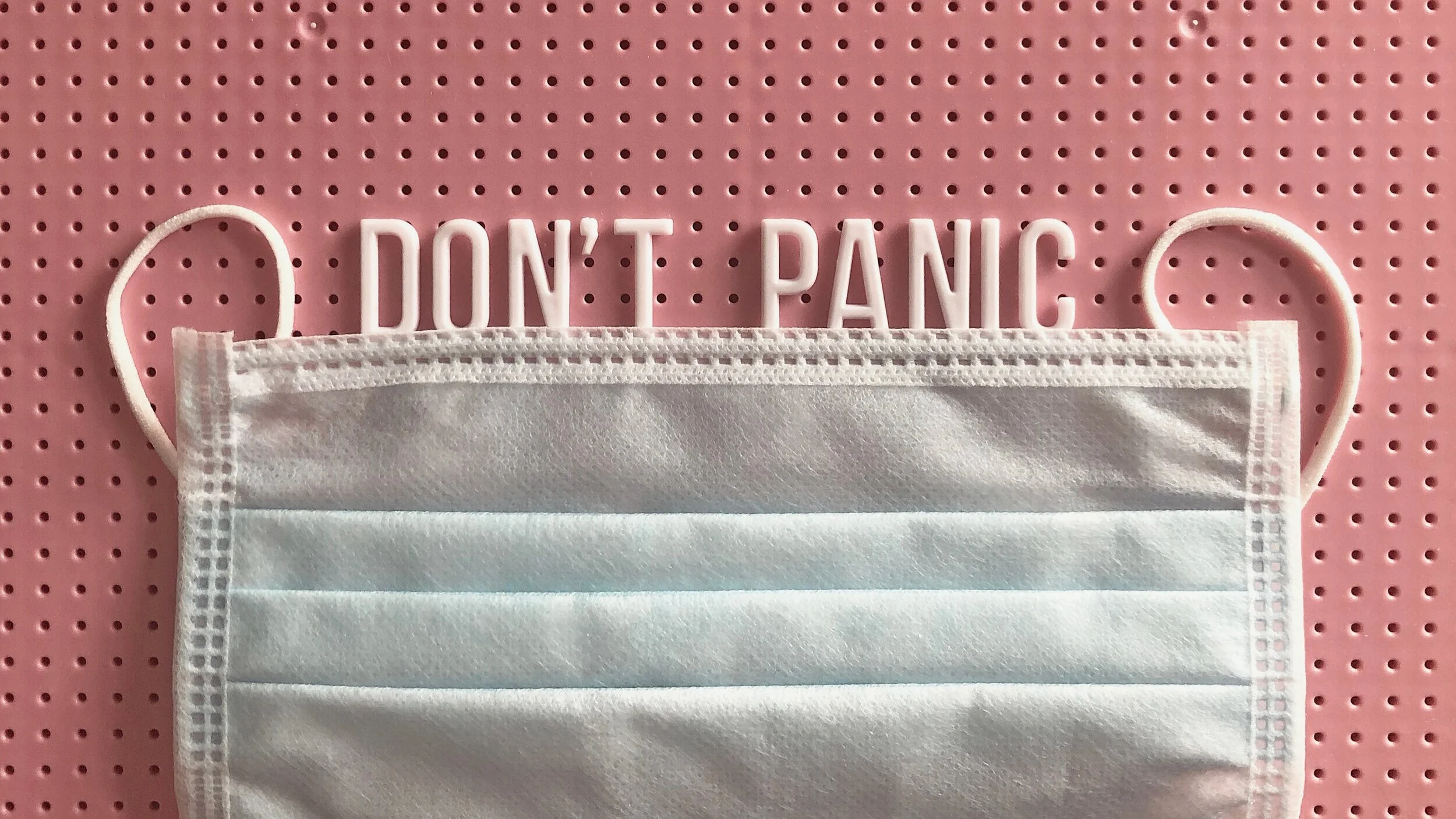The Biology of Fear
By Jenna Hajny
On March 13, 2020, UCLA announced that the remainder of the academic year would be conducted online due to the threat of COVID-19. [1] In an instant, my mind was consumed with questions about moving out of my dorm, staying in touch with friends, and rearranging my plans for the spring quarter. Most of all though, I began to fear for the safety of my friends and family. While self-care is key during times of uncertainty, I’ve also found some solace in human biology. Understanding the biological basis of fear as well as developing strategies to navigate this emotion can help your body determine when the fight-or-flight response is actually necessary.
How Does Fear Affect the Body?
Fear is an intrinsic human emotion designed to protect us from perceived threats. The reaction begins in a region of the brain called the amygdala. This almond-shaped structure located in the brain’s temporal lobe is responsible for determining the emotional significance of stimuli. [2] A threatening stimulus, such as the sight of a wild tiger, triggers a fear response in your amygdala. From there, the amygdala prepares the body for movement while releasing stress hormones.
Another important function of the amygdala is to trigger the sympathetic nervous system. This division of the nervous system prompts the adrenal glands to release epinephrine into the bloodstream. [3] Epinephrine, otherwise known as adrenaline, contributes to the symptoms commonly associated with fear such as shortness of breath, rapid heart rate, and butterflies in your stomach. This hormone also causes dilation of the pupils, tunnel vision, and reduced hearing. [4]
A brain region called the hippocampus is also involved in one’s fear response. This region, along with the prefrontal cortex, is responsible for memory storage and decision making. [5] When stimulated, these centers assess the perceived threat and accordingly control the fear response.
What Can You Do to Mitigate Fear?
When we frequently experience fear it can cause significant distress and limit our ability to feel positive emotions such as joy. One common way this emotion makes its way into the daily lives of college students is through the fear of failure. This can involve a fear of disappointing others and/or not meeting your own expectations. With the unfamiliarity of online instruction this quarter, students may be even more worried about maintaining academic success. But, by developing a set of coping strategies to enact in times of high stress or emotional vulnerability, many fears can easily be alleviated.
First, try to find the benefits of past failures.
It’s easiest to start this activity with smaller moments of disappointment, rather than lofty life goals you may have fallen short of. For example, after receiving a suboptimal grade on an exam, write down three things you learned from this experience. If I were conducting this activity, I’d write:
Trust your gut – avoid second-guessing yourself
Try different study methods – complete more practice tests and make flashcards
Don’t give up – your hard work will pay off eventually
Materializing the useful lessons you’ve learned from previous failures can help make your current source of stress seem less daunting. It’s important to make these lessons future-forward and optimistic to prevent continued regrets and nitpicking. This exercise can contribute to future successes.
Secondly, your mindset is key.
While our fight-or-flight response encourages us to view stressors as threats, consciously deciding to call them challenges can significantly increase your chance of success. [6] This simple change mitigates the fear response and therefore has a soothing effect on the body. Furthermore, labeling something as a challenge implies that there is a capacity to overcome by taking the necessary steps. If you’re worried about the coronavirus, make sure you’re following the CDC’s recommendations on how to protect yourself. Important precautions include wearing a cloth face covering and washing your hands often. [7]
Visualizing your desired outcome can also help mitigate fear. [6] If you’re stressed about getting a good grade on your chemistry midterm, picture yourself feeling confident while taking the test from home. Practicing visualization not only combats fear but also improves focus, motivation, and fosters inspiration. [8]
Finally, treat yourself with kindness when you experience failure.
Practicing self-care is proven to boost positivity, productivity, and motivation; all of which are building blocks for future triumph. [9] Forms of self-care include exercise, listening to music, journaling, spending time with friends and family, getting a massage, and nourishing your body with fresh foods. Choosing to be kind to yourself can help alleviate emotions of guilt, shame, and self-hatred often produced by failure. [10]
While fear can be a consuming emotion, especially when people’s health is at risk, understanding how our bodies respond in high-stress situations and developing a set of coping strategies can prevent a full-blown fight or flight response. The next time you find yourself tensing up and there isn’t a wild tiger in sight, try taking a walk around the block to get some fresh air or FaceTiming your friends. Take charge of how you’re feeling rather than letting fear control you.
References
“UCLA Extends Online Instruction Through End of Spring Quarter.” dailybruin.com. (2020).
“What Happens in the Brain When We Feel Fear.” smithsonianmag.com. (2017).
“Understanding the Stress Response.” health.harvard.edu. (2011).
“Anxiety Disorders.” mayoclinic.org. (n.d.).
“Executive Control and Decision-Making in the Prefrontal Cortex.” sciencedirect.com. (2015).
“Three Ways to Overcome Fear of Failure at Work.” greatergood.berkeley.edu. (2018).
“Prevent Getting Sick.” cdc.gov. (2020).
“5 Benefits We Can Reap From the Power of Visualization Immediately.” huffpost.com. (2015).
“Practicing Self-Care Is Important: 10 Easy Habits To Get You Started.” forbes.com. (2017).
“Three Ways to Overcome Fear of Failure at Work.” greatergood.berkeley.edu. (2018).









